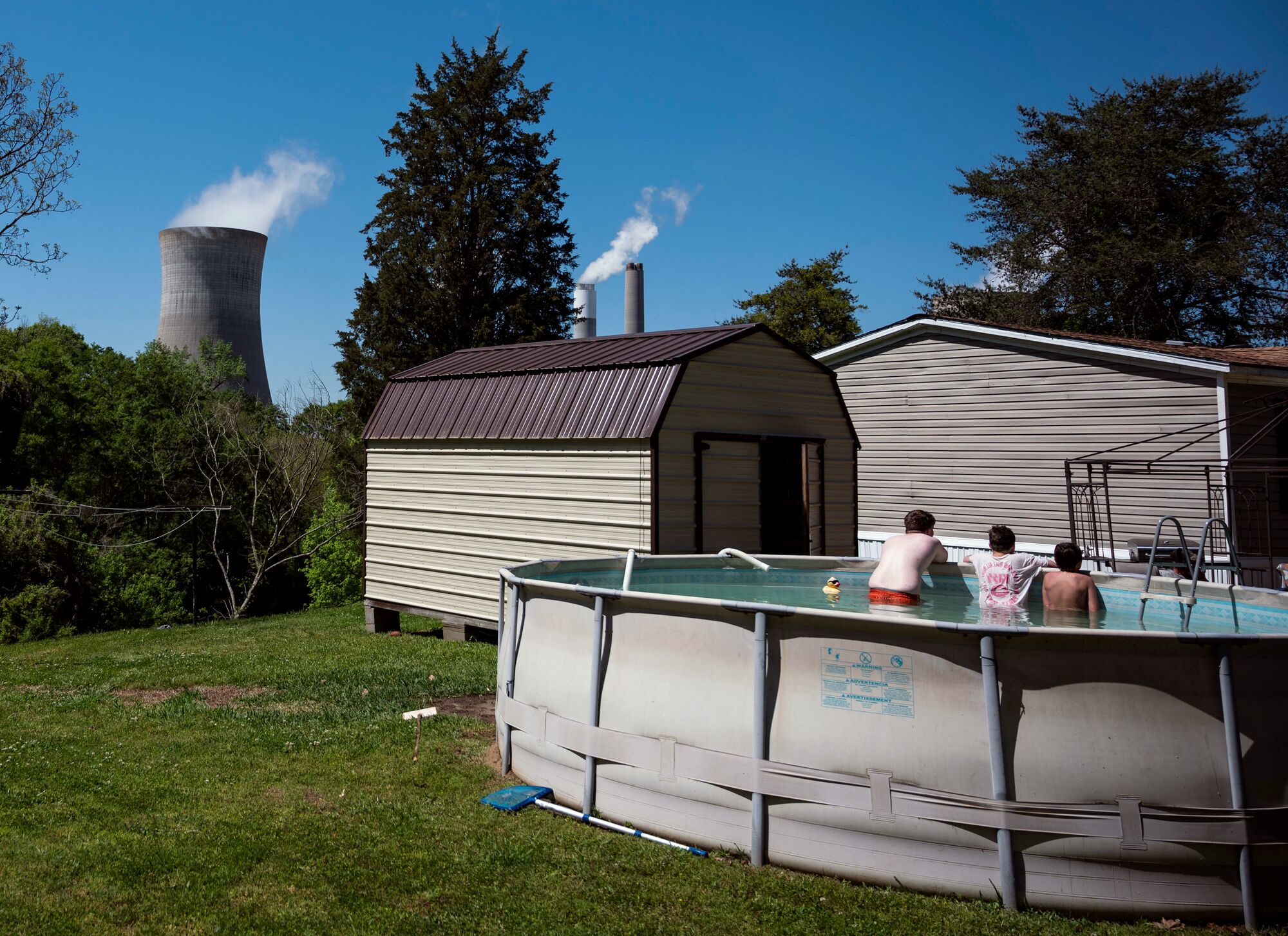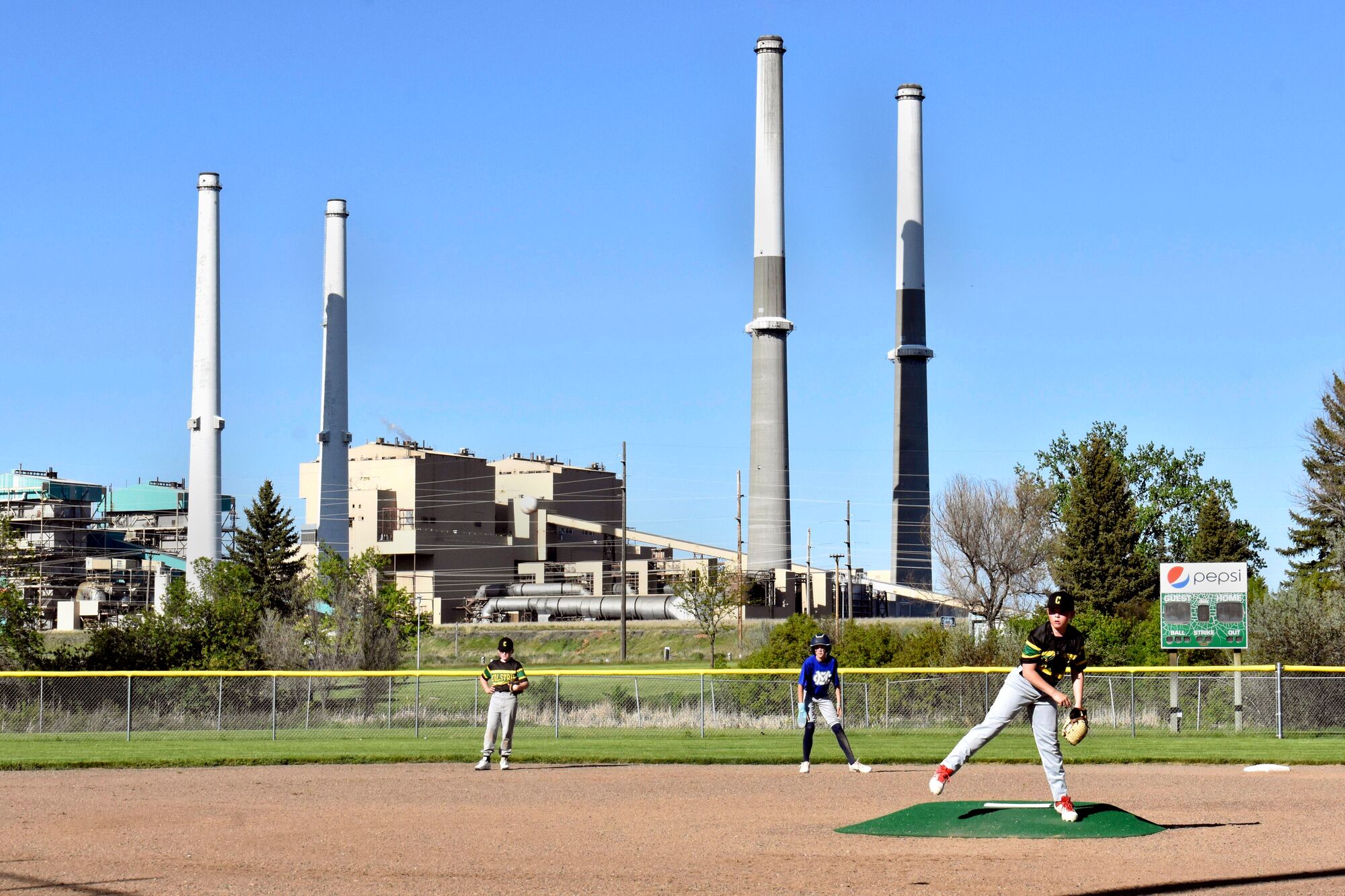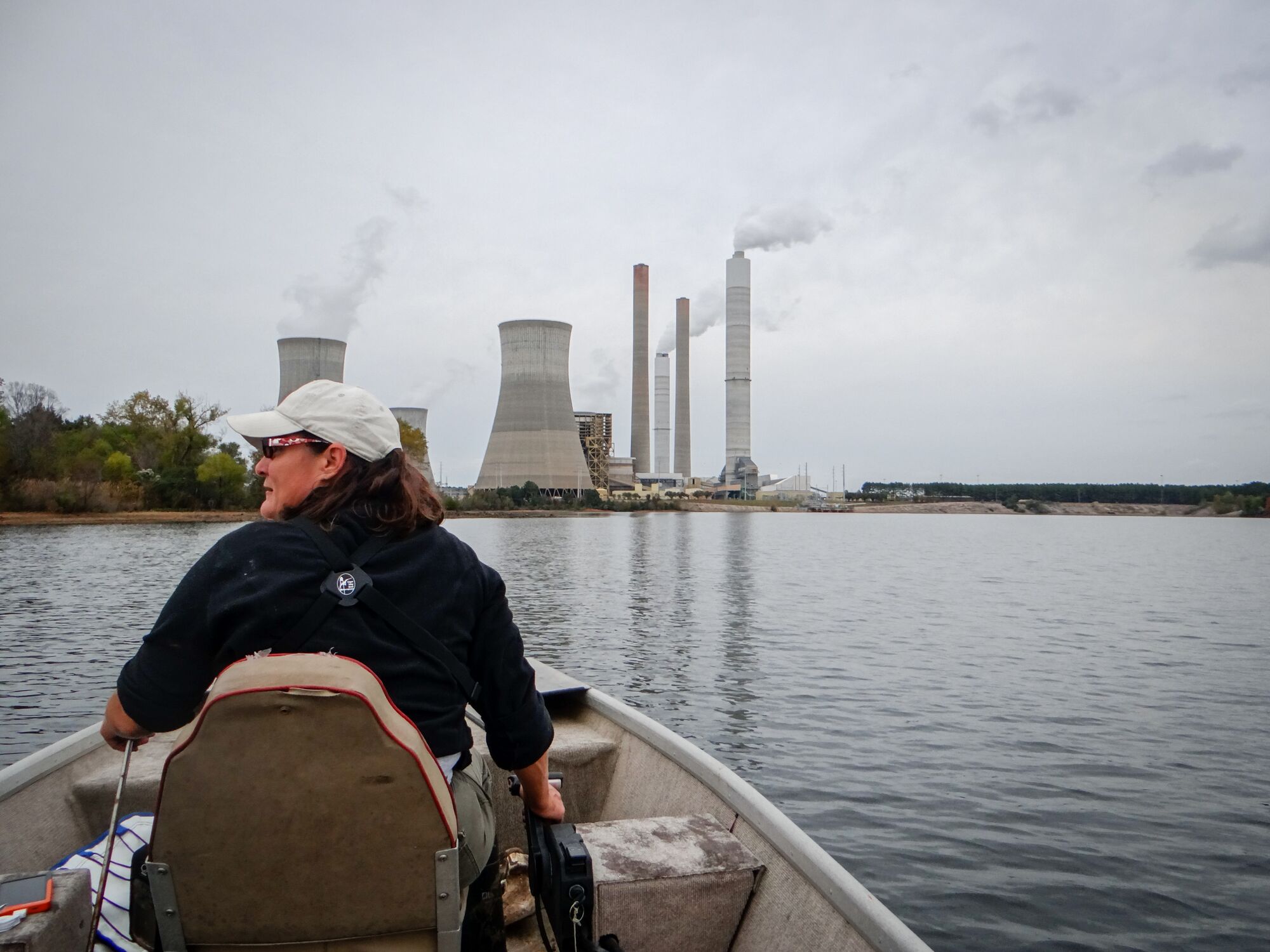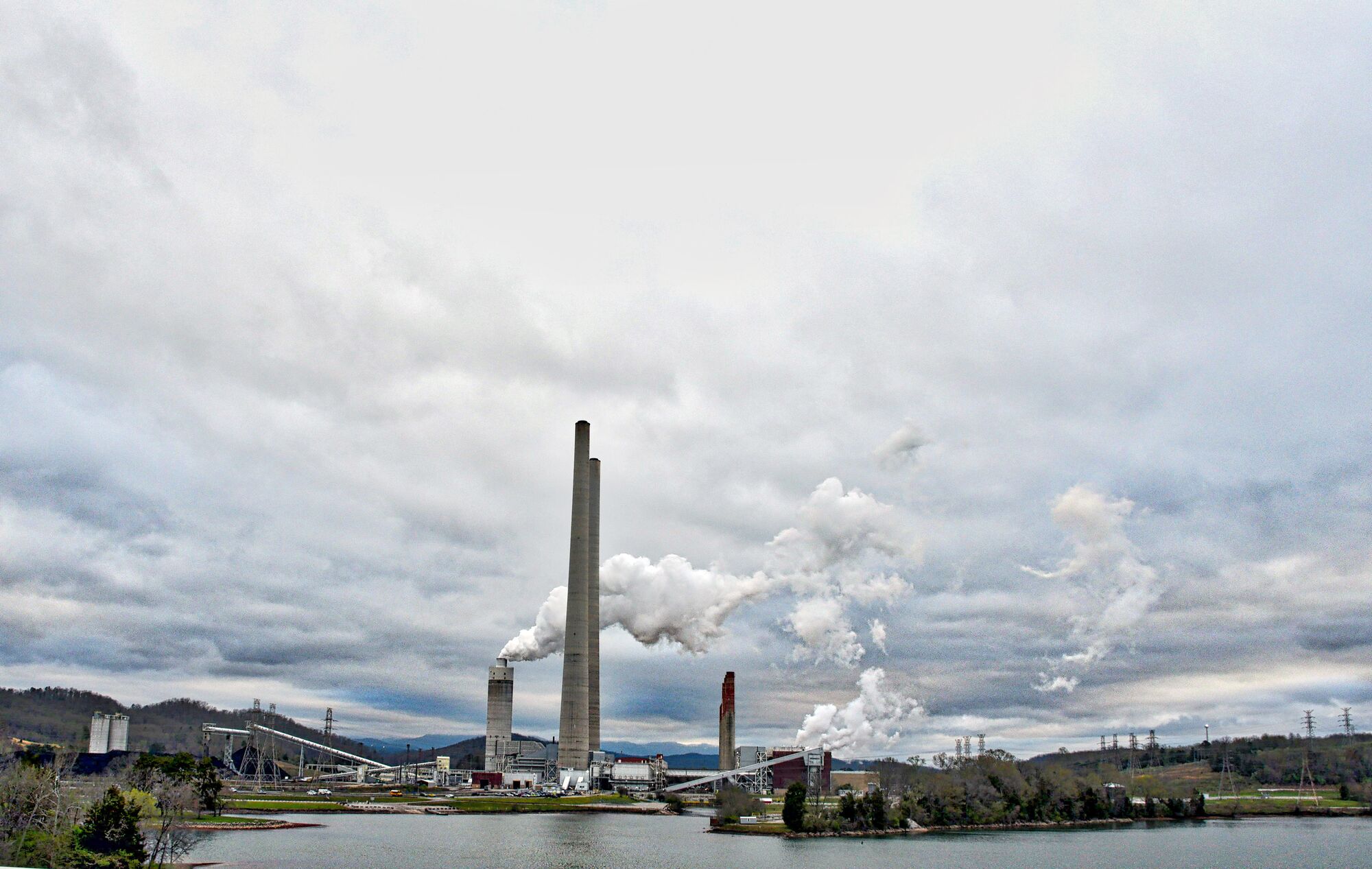June 12, 2025
Corporations Emailed. Then 68 Power Plants Got a Pass to Pollute.
Using a loophole, the Trump administration exempted these coal power plants from mercury and arsenic limits, polluting the air we breathe.
Source: EPA data analysis by EDF and EIP
Exemptions by the U.S. Environmental Protection Agency allow 68 power plants to release more mercury, arsenic, and other heavy metals known to damage children’s brain development, trigger asthma attacks, and cause cancer.
On behalf of our clients, we’re challenging the unlawful policy.
About the lawsuit
Representing Air Alliance Houston, Clean Air Council, Downwinders at Risk, Montana Environmental Information Center, and Sierra Club, we’re suing the Trump administration in the U.S. District Court for the District of Columbia. Read the legal complaint.
Earthjustice was created to fight — and win — for our planet in court. We’re here because the earth needs a good lawyer.

James H. Miller Jr. Plant
Alabama
Kids take a break in a swimming pool in the shadow of the James H. Miller, Jr., coal-fired power plant in Jefferson County, Ala.
The Trump administration has exempted Plant Miller from pollution limits set in the 2024 Mercury and Air Toxics Standards. Andrew Caballero-Reynolds / AFP via Getty Images
What happened?
EPA Administrator Lee Zeldin invited corporations to email the agency to request exemptions from clean air standards.
Dozens of coal power plants took advantage of the offer. Corporations were told they could cite “national security” or “lack of available technology” as justification — despite the fact that pollution controls are widely available.
It’s unclear how many coal power plants took advantage of the offer, but in April, exemptions were provided in bulk.

Colstrip Generating Station
Montana
The coal-fired Colstrip Generating Station towers over youths playing baseball.
Colstrip — the largest emitter of toxic particulate matter of any plant in the nation’s aging coal fleet — has been exempted by the Trump administration from pollution limits set in the 2024 Mercury and Air Toxics Standards.
Matthew Brown / AP Photo
What are the Mercury and Air Toxics Standards?
The Mercury and Air Toxics Standards force older, dirtier power plants to clean up their act.
The safeguards have proven enormously successful at limiting dangerous air pollution.
For decades, coal- and oil-burning power plants largely avoided restrictions on emissions of hazardous air pollution, which the Clean Air Act regulated.
Finally, in late 2011 — after decades of efforts by Earthjustice and our clients — the Mercury and Air Toxics Standards became the first set of federal regulations to limit mercury and other air toxics emitted by power plants, and require meaningful reductions of pollution from many older coal plants.
In 2024, the EPA further strengthened the Mercury and Air Toxics Standards, expanding continuous emissions monitoring, setting stricter pollution limits, and more. More work is still needed to safeguard public health and reduce environmental injustice. Specifically, other toxic pollutants that power plants emit — including benzene and dioxins — are still effectively unregulated.

Plant Scherer
Georgia
Jen Hilburn, then-Altamaha Riverkeeer, on Lake Juliette at Plant Scherer in central Georgia. Plant Scherer began operation in 1982.
Until the Mercury and Air Toxics Standards came online, power plants accounted for half of the total man-made emissions of mercury in the U.S.
The Trump administration has exempted Plant Scherer from pollution limits set in the 2024 Mercury and Air Toxics Standards. Waterkeeper Alliance
What is Earthjustice doing?
On behalf of community and environmental groups, Earthjustice sued the Trump administration over its unlawful decision to exempt 68 coal power plants from mercury and arsenic pollution limits.
“This is a political favor for coal corporations that results in families and children breathing more mercury and arsenic, chemicals that cause cancers and birth defects,” explained Earthjustice attorney Nicholas Morales.
The legal challenge came one day after the Trump administration proposed to repeal the 2024 Mercury and Air Toxics Standards and the 111 Power Plant Rule, which limits climate-heating greenhouse gas pollution from coal and gas-fired power plants.
The lawsuit was filed in the U.S. District Court for the District of Columbia. Earthjustice clients include Air Alliance Houston, Clean Air Council, Downwinders at Risk, Montana Environmental Information Center, and Sierra Club.

Kingston Fossil Plant
Tennessee
The Kingston Fossil Plant is located in Roane County, on the shore of Watts Bar Lake. It is operated by the Tennessee Valley Authority.
In 2008, more than 1 billion gallons of toxic coal ash sludge burst from a dam at the Kingston plant, sweeping away homes and contaminating two rivers.
The Trump administration has exempted the Kingston plant from pollution limits set in the 2024 Mercury and Air Toxics Standards. Paul Harris / Getty Images
When we say we’ll sue, it’s not a threat. It’s a promise — a promise that until we achieve a better future for all, our pursuit for justice will never rest. We will win this fight — for the wild spaces we love, the air we breathe, the water we drink, and the future of life itself. Join the fight today.
Give Once
Give Monthly 💚
Your 1st year of monthly gifts matched $3:$1. Choose an amount to give:
iStockphoto
Map Acknowledgements: Data of the 68 coal plants is courtesy of Environmental Defense Fund and Environmental Integrity Project’s Trump EPA Pollution Pass Map. List of coal plants updated on May 15, 2025.
See the Trump EPA Pollution Pass Map for information on more than 500 industrial facilities that emit toxic and hazardous air pollution on whether they (or a representative) have requested or been granted a pollution exemption.